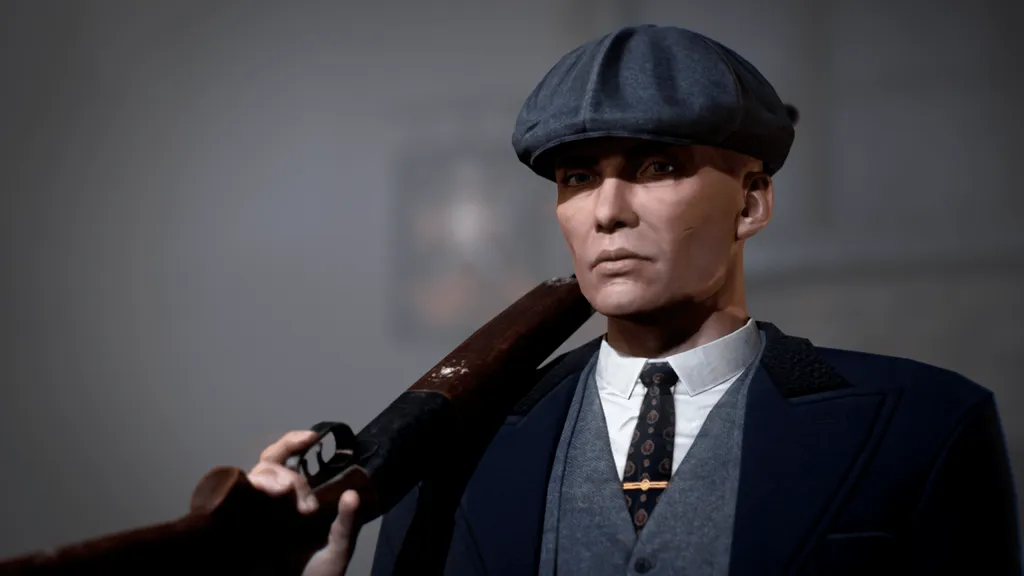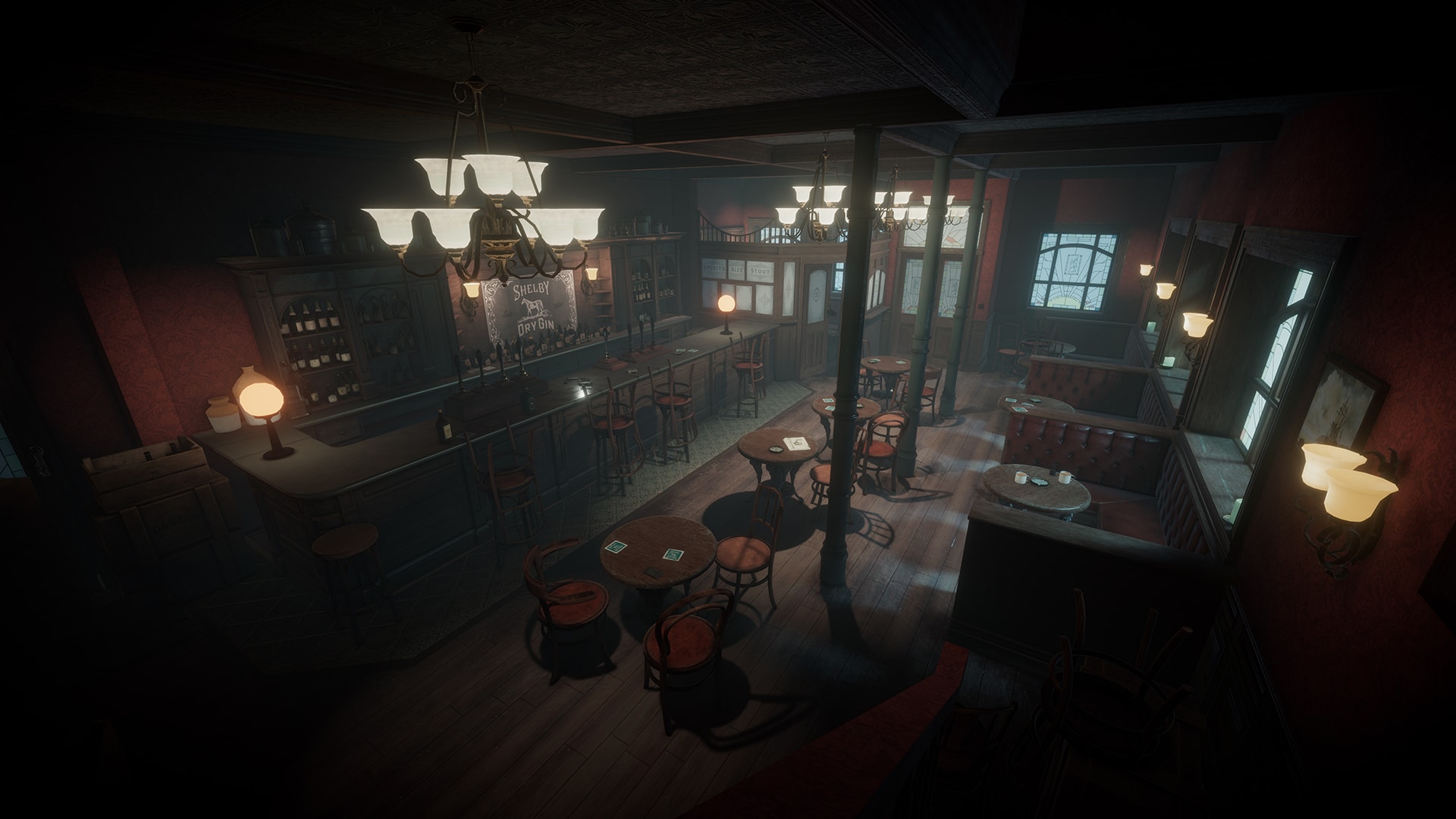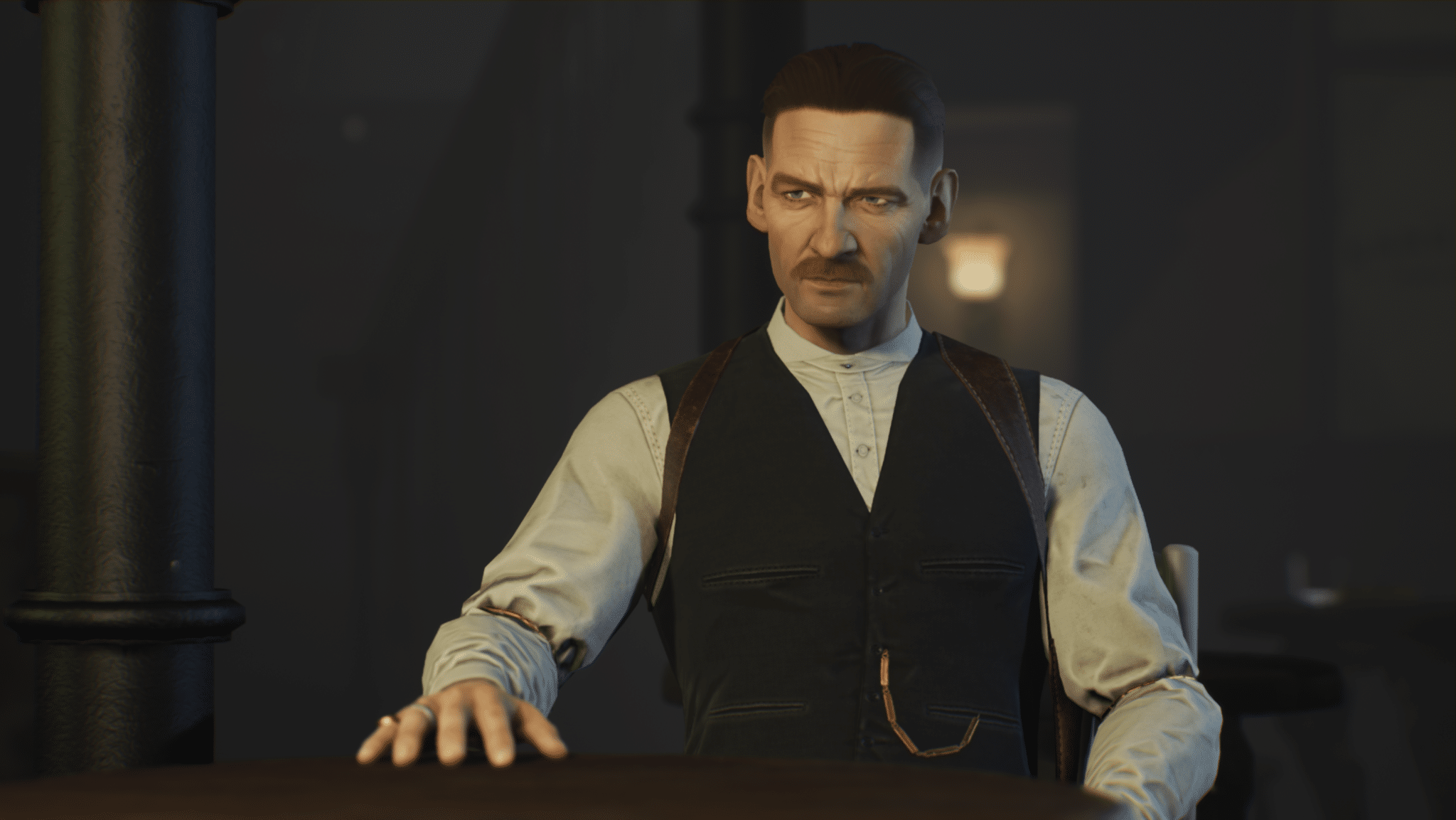London-based Maze Theory has carved out a corner of its own in the VR industry.
Whilst many studios continue to work on original IP or adapt famous gaming and film series for headsets, Maze Theory is moving on to work on its second VR game based on a popular BBC-produced television show in Peaky Blinders: The King’s Ransom. Its debut title was 2019’s Doctor Who: The Edge of Time, a modest adventure game that played like a greatest hits compilation from the sci-fi series. Now the team is turning its attention to the murky misdeeds of the Shelby family.
Exaggerated British accents aside, the two shows are literally worlds apart; Doctor Who offers family-friendly hijinks across time and space, whereas Peaky Blinders chronicles the rise of one gang’s criminal empire in post-war Birmingham. The Peaky game will have you embody an all-new character trying to join the family, completing missions handed down from the regular cast.
Despite their differences, Studio Director Russ Harding says that Maze Theory has taken some key learnings from The Edge of Time and applied them to The King’s Ransom. “We wanted to make sure that the world was more open,” he says of where the team wanted to improve with its follow-up project. “I don’t mean completely open, but it’s a returnable world.”
Edge of Time was an entirely linear experience, a maze of corridors intended to get you in front of some of the series’ biggest and baddest aliens across the space of two or so hours. With The King’s Ransom, Maze Theory wants to make sure you have the time to soak in 1920’s Birmingham and iconic locations like the gang’s hideout, The Garrison.
“Parts of the world are connected and so yes, the narrative pushes you through that world,” Harding explains. “You can stray away from that at various points and explore the world in itself. So if you want to hang out in the pub, if you want to hang out in the betting shop and you want to find out more about that world, you can do that.”
You’ll be able to return to these locations later with new items, as well, and there will be more opportunities for player interactions. You can throw darts at the pub for example, or tune radios to listen to the airwaves.
Another area Maze Theory is really looking to capitalize on this time is with characters. Despite being set in the world of Who, which is usually full of companions and allies, Edge of Time had no face-to-face meetings with friendly NPCs and allies. Even the Doctor herself was only ever shown on TV screens or as a hologram. Peaky Blinders, meanwhile, will have you up close and personal with series protagonist Tommy Shelby (with Cillian Murphy reprising his role) and brother Arthur (voiced and performed by Paul Anderson).
The focus here will be on making “believable” characters, that are aware of your presence in the environment. “You’ll have instances where you’ll be in the pub and you will have the opportunity to sit with Tommy, have a one-to-one with him, pour him some drinks whilst he’s having a cigarette,” Harding explains. “He’s delivering to you what he wants you to carry out.”
Missions might involve some action, Harding says, but don’t expect the game to be a full-blown shooter. The show usually presents Tommy with a number of obstacles to overcome in inventive ways, and Maze Theory is looking to replicate that approach in the game.
Lastly, the team’s taking on a more ambitious technical challenge. Edge of Time was one of those VR games that had to dramatically shift development gears once it became clear the Quest platform was starting to perform well. The result was a somewhat janky port of a PSVR and PC VR game, but Harding says this won’t be the case this time around.
“Quest 2 is our main focus at the moment,” he says. “So we’ve put in place a lot of pipelines around the quality of art, technical art, a lot more emphasis on delivering to the highest possible spec on that platform.”
For now, Peaky Blinders: The King’s Ransom is planned for release sometime in 2022, with only Quest 2 and PC VR versions confirmed. Maze Theory has also dipped its toes into flat screen gaming in the past few years and, while that work will continue, the studio is confident on the future of VR, too.
“The audience is way, way bigger now than it ever has been,” Harding says. “Doctor Who has done incredibly well on the Quest and PSVR platforms, it’s done really well. We see that there’s continual pick up on those titles still. But I think it’s a much more comfortable [position] we’re in and as a company we’re definitely invested in VR. We’re looking at the next titles. We are also looking at how these titles might be maintained in the future.”




























